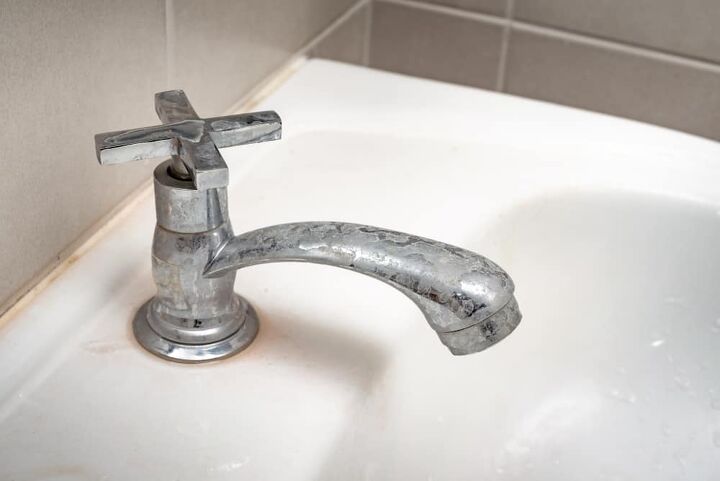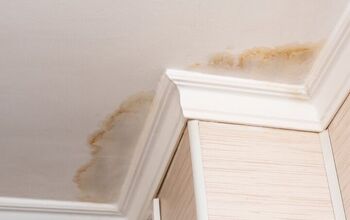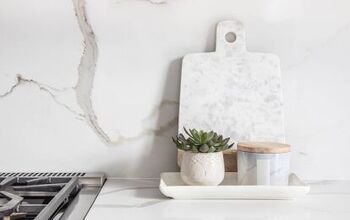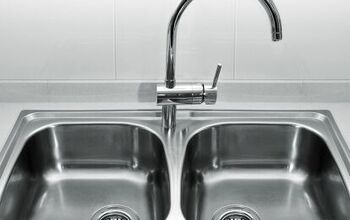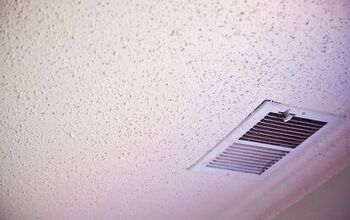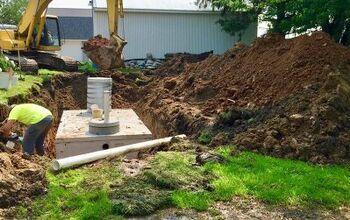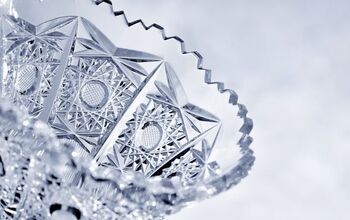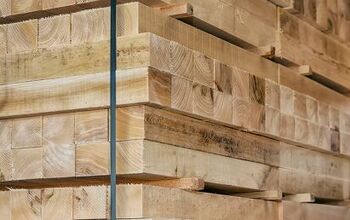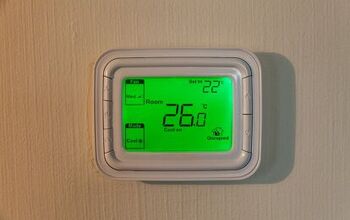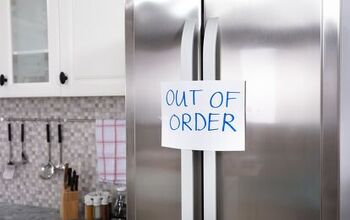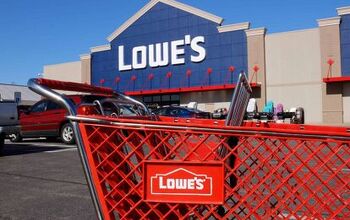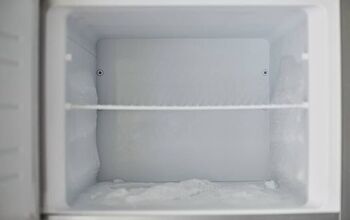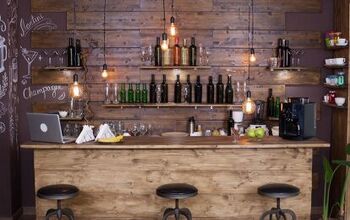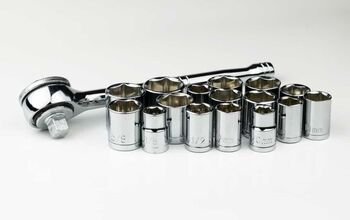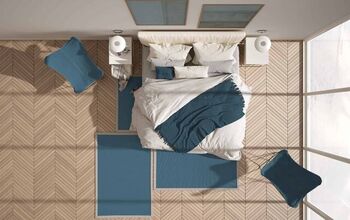How To Remove Hard Water Stains From Stainless Steel Surfaces

Stainless steel fixtures, appliances, and cutlery are welcome inside most homes because of how easy they are to clean. They even resist certain kinds of stains better than other materials.
However, even stainless steel cannot resist all kinds of stains. Hard water stains in particular are known to show up on stainless steel items quite often. Thankfully, you can act quickly to remove those hard water stains.
A rag soaked with vinegar can be a highly effective cleaner against hard water. Use the vinegar-soaked rag to rub away the hard water stains and add more elbow grease and vinegar if needed. Finish by rinsing the stainless steel surface clean with water before wiping it down.
Knowing how to clean up hard water stains on stainless steel surfaces is a must for every homeowner. Learn more about the nature of hard water, cleaning it, and preventing the stains it may cause by reading on.
Do You Need a Maid Service?
Get free, zero-commitment quotes from pro contractors near you.

Why Do You Have Hard Water at Home?
Before we jump into the topic of removing stains, it’s important to learn more about why you have hard water. Often, the biggest factor is the location of your home. There are certain parts of the United States that are known for having hard water.
In places where hard water is known to flow, there’s a good chance that the groundwater nearby moves through limestone. As the water continually passes over the limestone, more minerals dissolve into it. Those dissolved minerals then make their presence felt as they flow through your plumbing and end up on various items.
Is Having Hard Water Bad?
There’s no denying that hard water stains are not very pleasing to the eye, but are there other reasons to worry? Could hard water possibly pose a danger to your home or possibly to your health?
When it comes to your home, yes, hard water can present some problems. Apart from ruining appliances and clothes, it can also damage your pipes and fixtures. Hard water deposits inside your pipes can cause clogging and fixtures like showerheads may stop working too.
From a health perspective though, there’s no need to worry about hard water. It tastes weird, but it won’t cause you to get sick. If anything, the minerals in hard water could even prove beneficial to your body.
Even so, you can get those minerals in other ways. As a homeowner, you’re probably more interested in keeping your appliances and fixtures clean.
How to Remove Hard Water Stains from Stainless Steel
It’s now time for us to talk about removing hard water stains. There are different ways to remove them from stainless steel, but the method below is arguably the easiest and most convenient.
Step 1: Prepare Your Cleaning Items
You don’t need to head to the supermarket to pick up some special cleaning items. As long as you have some rags, water, and vinegar, you’ll be good to go.
Step 2: Soak Your Rag in Vinegar
Grab your bottle of vinegar and use it to soak one of your rags. You don’t need to douse the rag completely. Getting it damp should be enough for now.
Step 3: Clean the Hard Water Stains
Use your vinegar-soaked rag now on the hard water stains. Keep wiping until the stains start to fade away. If you notice that the rag isn’t cleaning up anymore, soak it in some more vinegar.
Step 4: Clear Away the Vinegar
Pick up a separate rag and soak that in some warm water. Wring most of the water out then use the damp cloth to wipe over the same surface. You don’t need the rag itself to clean the stainless steel. All you need it for is to get rid of the vinegar smell.
Once the vinegar residue has been wiped away, get another rag and use that on the stainless steel surface. Allowing the water to air dry could lead to more stains so wipe it clean instead.
How to Remove Stubborn Hard Water Stains from Stainless Steel
Vinegar on its own should suffice for most hard water stains due to its acidity. However, some hard water stains do require a bit more abrasiveness because of how solidified they are. You’ll need to use vinegar and baking soda to clean those stains.
Start by following steps one through three in the previous section. Once you’re done with them, sprinkle some of the baking soda on the stains.
Get a rag then proceed to scrub the hard water stains. The abrasive texture of the baking soda is key here because it will help dislodge the solidified hard water. Refrain from scrubbing too forcefully though as that could cause scratches to form on the stainless steel surface.
After scrubbing with the baking soda, wipe the surface with a damp rag, and then a dry one. That should be enough to remove the stubborn hard water stains.
What Other Items Can Be Used to Clean Hard Water Stains on Stainless Steel?
Vinegar, baking soda, and water are really the only substances you need to handle most of your stainless steel cleaning. There are times though when those household items may not suffice. Listed below are the other items you can use to eliminate hard water stains on stainless steel.
Rubbing Alcohol
Rubbing alcohol is a harsh substance and that makes it a particularly potent stainless steel cleaner. It can be a touch on the strong side, however. If you’re planning to use this on stainless steel, dilute it with some water to prevent lasting damage.
WD-40
The ubiquitous lubricant known as WD-40 also excels at removing hard water stains. Consider using it on surfaces that have plenty of built-up grime along with hard water. Spray some WD-40 on the stainless steel then wipe it clean to get the intended result.
Commercial Cleaners
Using a commercial cleaner often isn’t necessary, but it is useful if the surface is damaged. The commercial cleaner can restore the shine of the stainless steel while simultaneously polishing the blemishes on the surface.
How Do You Polish Stainless Steel?
Like chrome, stainless steel looks best when it has its trademark luster. Due to the hard water stains, your stainless steel fixtures and appliances may have lost that luster. Restore it easily using some olive oil. You don’t need a bottle of the fancy stuff here. Plain old olive oil will suffice.
Start applying the olive oil as soon as you finish cleaning the stainless steel with the vinegar and/or baking soda. Soak a rag with the olive oil first to get it on to the stainless steel surface properly.
Follow the grain of the stainless steel as you apply the olive oil. When you’re done, just wipe away the excess olive oil with a rag and marvel at the shiny surface.
How Do You Maintain the Shine of Stainless Steel?
Cleaning stainless steel fixtures and appliances with vinegar, baking soda, and the other aforementioned items every day is not necessary. For day-to-day care, there is an easier way to maintain the beautiful appearance of those stainless steel surfaces.
Invest in a microfiber cloth and use that to wipe down stainless steel surfaces daily. You don’t even need to use a cleaning agent along with it. If the surface looks a bit duller on a given day, soak the microfiber cloth in some water before wiping.
How Do You Keep Hard Water Stains from Showing Up?
There is no closely guarded secret to preventing hard water stains on stainless steel surfaces. You just have to clean those surfaces regularly and prevent the hard water from leaving deposits behind.
Another thing you can do is wipe things down better. Whether it’s your fixtures, appliances, or cutlery, take a moment to wipe them down properly to prevent stains. If no water remains on the surface, the mineral deposits won’t show up as well.
Do You Need a Maid Service?
Get free, zero-commitment quotes from pro contractors near you.

Related Questions
What Is Limescale?
You may have heard or read about limescale before while researching the topic of hard water. Essentially, limescale is another term used to refer to the hard water deposits that show up on different fixtures and appliances.It also helps to think of limescale as a thicker coating of hard water stains. Limescale can continuously accumulate in layers over fixtures and appliances. This substance can alter the appearance of those items, but that’s not the real reason you should be mindful of it.
Does Limescale Affect the Lifespan of Fixtures and Appliances?
The real reason why you should worry about the presence of limescale is because it can damage fixtures and appliances. At first, it may just affect their performance. You may notice the water flowing slower through your faucet or your washing machine having more issues. Those problems can be traced back to the presence of limescale.Even your plumbing is not spared by limescale. Continued buildup of limescale inside pipes may lead to improper water flow. You may have to replace those pipes to restore the normal flow of water inside your home.
How Do You Keep Hard Water Out of Your Home?
If you want to avoid the problems presented by hard water, consider purchasing a water softener. Water softeners remove many of the minerals found in hard water. Those appliances can help keep all kinds of surfaces inside your home free from hard water stains.

We are a team of passionate homeowners, home improvement pros, and DIY enthusiasts who enjoy sharing home improvement, housekeeping, decorating, and more with other homeowners! Whether you're looking for a step-by-step guide on fixing an appliance or the cost of installing a fence, we've here to help.
More by Upgraded Home Team



